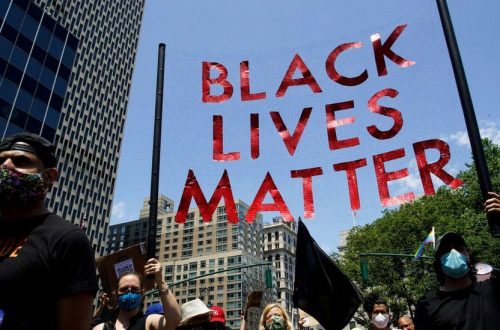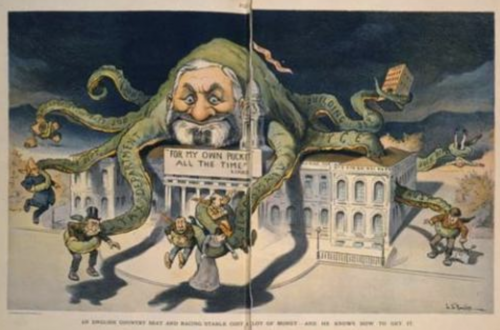The prospect of a clutch of new female leaders has been much mulled over in the media. Although I certainly welcome these successful women as a symptom of increasing equality I’m wary of those who argue that they will do any better simply because they are female. Yet this is the line taken by several commentators.
Jóhanna Sigurðardóttir, Iceland’s first female Prime Minister, argues that women are less inclined to risk-taking than men, and quotes from an Icelandic poem to illustrate the need for women to clean up the mess men make:
– a woman always arrives
to clear the table
sweep the floor and open the windows
to let out the cigar smoke
She concludes:
In my experience, women work hard to create a more just and equal society – when they are given the chance. If that was more often the case, and women were not simply called in to do the cleaning up when the men have made a mess of things, I think the world would become a better place.
I don’t see how replacing one kind of sexist generalisation with another represents an advance. And there’s a striking absent presence in her paean to sensible and Brexit-averse female leaders – Marine le Pen.
This narrative of the competent woman tidying up men’s mess is repeated by Mara Delius in Die Welt
Men have caused chaos, women clean up
And in this Guardian piece Conservative peer Lady Jenkin explains why the country is ready for a ‘nanny’ figure:
Of the fact that two of the most favoured candidates for the party’s leadership were women, [Lady Jenkin] said: “I think the whole country feels rather relieved … I think there is a feeling of, ‘Yes, nanny, please come and tell us what to do.’
“I think they feel that at a time of turmoil, a woman will be more practical and a bit less testosterone[-driven] in their approach. More collaborative, more wiling to listen to voices around the table, less likely to have an instantly aggressive approach to things.”
This enthusiastic embrace of female difference when it plays in women’s favour mirrors and justifies the equally sweeping generalisations used to prop up men. Suzanne Moore seems to acknowledge this danger when she deliberately invokes arguments used against women in her swipe at male politicians whom she terms ‘hysterical’.
In these anxious times the last people who seem able to show leadership are those shrieking about with some flailing version of masculinity that is leaky, porous, inflexible on different days of the week.
While some welcome the rise of May and Leadsom simply because they are female, others are quick to point out that they are in fact the wrong sort of female. Sophie Walker of the Women’s Equality Party says that it’s not enough for women to rise to positions of power – they need to support policies which will further promote equality:
Leadsom, she notes, has previously called for women working for small businesses to be stripped of maternity rights, while May – to whom she gives credit for supporting victims of domestic violence – presided over the detention of pregnant women and others with mental health conditions at Yarl’s Wood. “You need to really question their policies. You need to ask what they are going to do to make women equal in this country.”
Laurie Penny quite correctly observes that women are just as likely to be flawed and incompetent as men. I also think she may have a point here:
Women still have to answer for their entire sex in a way that men are never expected to.
However she goes on to submit both Tory candidates to a scrutiny which itself seems unfairly gendered:
The fact of being female does not mean a leader will deliver for women. Neither of the remaining Tory candidates seems poised to turn parliament into a knitting circle. Theresa May has a staggeringly right-wing record on immigration, has been involve in the deportation of refugee women fleeing rape and violence, and voted to cut abortion rights. Andrea Leadsom is a right-wing religious fanatic who did not vote for gay marriage. Both of them have stood up for welfare cuts that will hit women hardest. No woman, however powerful, can escape sexism, but Leadsom in particular seems ready to use it to her advantage: in a typical newspaper interview, she described the delicious Sunday roasts she makes for her family, positioning herself as the sort of mother of the nation we might run to after having messed our pants in public. That sort of power play is many things, but it is not feminism.
There’s a kind of feminism creep at work here whereby all manner of policy positions with no obvious bearing on women’s rights can be construed as anti-woman. Whereas Leadsom’s support for cutting maternity rights for employees in small companies (something Penny doesn’t mention) really does impact on women, the other policies Penny lists have a more uncertain or indirect relationship with women/feminism and opposition to same sex marriage affects men and women equally. Would a male candidate’s enthusiasm for cooking be brooded over and dissected in such a way? And is Leadsom really a ‘religious fanatic’?
Feminism creep is also in evidence here. Cat Boyd asserts that Theresa May ‘opposes the most basic women’s rights’. This is even more hyperbolic than calling Leadsom a religious fanatic, and is apparently prompted by May’s support for a slight lowering of the abortion time limit and an unevidenced assertion that May wanted abstinence included in sex education lessons.
Boyd then outlines her own minimum feminist requirements.
However, there’s a more fundamental point here. For me, being a feminist today isn’t simply about creating room at the top for women. It’s not even just about challenging male power, not exclusively. No, feminism for me means challenging all hierarchies in society – and fundamentally, that includes racism and class inequality.
…
Even if May and Leadsom stood up for the basic sexual and reproductive rights, they still wouldn’t be feminists in my eyes. My kind of feminist isn’t someone who sets targets for deporting women and children back to warzones, who backs imperial land grabs in the Middle East, or who signs a blank cheque for Trident nuclear missiles.
One suspects Boyd would find it impossible to identify a single Tory feminist. But plenty of left wing women also fail to make the grade.
As OpenDemocracy noted last week, Eagle has “generally voted for a stricter asylum system”. She supported Blair’s Islamophobic crackdowns on civil liberties. She abstained on workfare and the Welfare Bill, two monumentally anti-feminist pieces of legislation. She backs Trident. She backed the Iraq War, and has consistently opposed any investigation into its circumstances. Taken together, I think it adds up to a pretty piss- poor feminism.
Hillary Clinton is dismissed equally scathingly. In fact only one figure emerges as a true feminist in Boyd’s eyes – Jeremy Corbyn.


